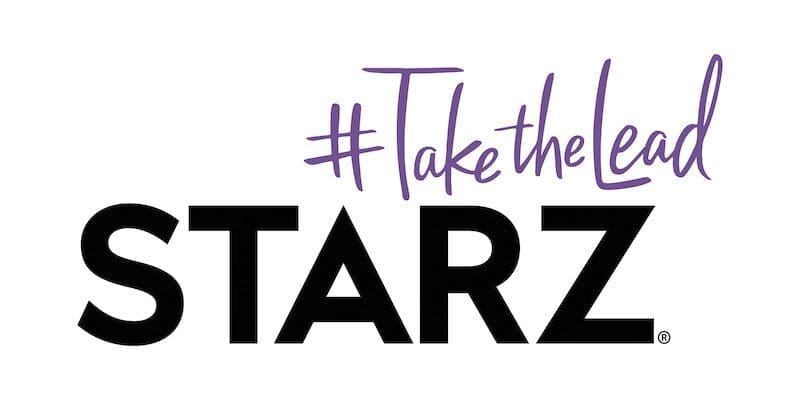Addressing the (mis)Representation of the Latinx Through TV and Film
Latinx creators continue to express frustration with their underrepresentation in Hollywood, and statistics confirm they have a right to be angry. Recently the entertainment company STARZ hosted the virtual panel #TakeTheLead Transparency Talks: Addressing the (mis)Representation of the Latinx Community through TV and Film. The Latinx House co-founder Mónica Ramírez moderated, wtih La La Anthony, Eva Longoria Baston, Olga Segura, and Amaury Nolasco as panelists.
Together the group discussed gains that have been made by Latinx, what challenges and roadblocks they still face, and what changes the industry must make to be truly inclusive and more reflective of the United States population. Starz launched the #TakeTheLead initiative as a comprehensive effort to deepen the company’s existing commitment to narratives by, about, and for women and underrepresented audiences.
The Panelists
La La Anthony is an actor, producer, businesswoman, New York Times bestselling author, and currently starring on Black Family Mafia.
Eva Longoria Baston is an award-winning actor, producer, director, entrepreneur, and philanthropist who is currently directing and executive producing the upcoming series The Gordita Chronicles.
Amaury Nolasco is an actor, producer, and star in the series Hightown.
Olga Segura is a producer, actor, activist, and also co-founder of The Latinx House.
An Open Letter to Hollywood
Ramírez kicked off the discussion by reading part of a 2020 open letter to Hollywood. It was signed by 270 showrunners, creators, television and film writers. The letter called for systemic change in the entertainment industry regarding Latinx artists. Those who signed noted that just 4.7 percent of feature writers and 8.7 percent of TV writers are Latinx, despite making up 18.3 percent of the United States population overall.
“As Latinx Showrunners, Creators, TV and Feature Writers, we are incensed by the continued lack of Latinx representation in our industry, especially among the Black and Indigenous members of our community,” Ramírez read. “Our stories are important, and our erasure onscreen contributes to the persistent prejudice that prevents real change in this country.”
Significant Progress?
Ramírez then turned to the panelists. She asked if they have seen significant progress or movement from studios, networks, cable companies, and streamers when addressing the issue of representation and whether they have seen significant gains for the Latinx community through this work.
Longoria Baston spoke first, saying she’s seen progress, but it has not been significant. While diversity programs and fellowships are now standard, Longoria Baston notes that unless those efforts lead to jobs, then it’s all just lip service and a press release. She also believes the programming (what makes it on the air in front of audiences) instead of development should be the success metric.
“Now that we have so many outlets and people consume content so differently, you have to be loud, you have to be different,” Longoria Baston said. “And the only way to be loud and different is to tap into different storytellers…I don’t know if the gatekeepers are willingly making progress. I think the audiences are demanding it.”
Segura added that the industry needs Latinx executives who can greenlight projects. She points out that if decision-makers don’t understand a community, cannot see a resemblance, nor understand a strong audience exists, a project can permanently stall and never reach viewers.
Anthony shared she wants to see more stories from the Afro-Latina perspective. She notes that Hollywood still has a certain view of what a Latinx female looks like, and there needs to be more opportunities and roles for Afro-Latinas that genuinely show the Latinx community’s diversity.
Representation in a Serious Way
Amaury expressed gratitude towards legendary Latinx Hollywood players who opened the gate for his generation to work in the industry. He pointed out that this type of discussion even happening shows progress has been made, even if there’s still a long way to go.
Ramírez asked Longoria Baston to comment on why the erasure of the Latinx community in Hollywood has been harmful and exacerbates societal problems. Longoria Baston immediately cited a 2019 study by USC Annenberg that found top films lag far behind the population when it comes to representing Latino characters.
“If you don’t see yourself reflected back, it really is a big lesson to our community that you don’t matter, that you don’t matter enough for your story to be told,” she said. “That’s the dangerous part, and that’s why it’s an erasure of culture. We need representation in a really serious and big way.”
Amaury remembers there was very little Latinx representation in Hollywood while growing up. Although he’s seen change, many Latinx artists today are often cast in roles that are killed off quickly or are the villains. Amaury shared he plays a villain in his current show. Along with Longoria Baston, he discussed the complexity of playing that intriguing character and recognizing it’s part of the stereotypical villain narrative. Amaury also said he’s turned down roles because they were not right for him to play.
Making the Change
Anthony stresses it’s up to audiences to support Latinx programming, and people need to show Hollywood that it makes sense financially to have greater representation. She also spoke to the importance of mentoring the next generation.
“None of us got to the position we’re in alone,” Anthony said. “Someone had to reach out and help us at various stages of our careers along the way. That, for me, is the greatest measure of success, for me to be able to help someone else live out their dreams the way someone has helped me live out mine. That, to me, is what success is, and it’s important because there are stories that need to be told, and that can only be told by us.”
Together Segura and Longoria Baston discussed The Latinx House showing up at Sundance Film Festival in January 2020. The project was an initiative of Justice for Migrant Women, an activist group, in official partnership with the film festival. That year was historic for Sundance, with a record-breaking number of features (20) with Latinx themes in competition.
Future Filmmakers
Ramírez closed out by asking the panel what young Latinas can do to get into the industry pipeline. Where can they get started?
Longoria Baston’s advice is to learn by doing. She hates when someone comes up to her with just a dream and nothing else. Longoria Baston stresses that you have to be in it for the art to be successful in the industry. Art of writing, acting, and directing, whatever it is, those aspiring for a career in film and television need to study their craft. And find your tribe because Hollywood is tough.
“You have to find your way and be resourceful,” Longoria Baston advised. “You cannot just come here and expect the doors to open. Because honestly, it’s an industry of rejection and nos. It’s an industry of objectification. It’s an industry of stereotypes. It’s an industry that tells you you have a shelf life as a woman. It’s an industry that says you’re too fat, skinny, tall, and dark, your hair is too curly. It takes a tough skin person to come into this industry. If anyone wants to do it, be prepared and be twice as good, especially for women.”
Amaury agreed that aspiring professionals must not just say it but do it. It’s all about perseverance. Anthony chimed in, saying that in the beginning, it’s all about love, passion, and not about money. She started her career with different internships, learning about many various aspects of the industry. Segura adds that when starting your career, you can receive one million nos before the one yes.

Starz #TakeTheLead
The Latinx House
Website
Instagram
Facebook
Twitter
YouTube
Written by Yohana Franco
Top image and videos provided by STARZ
More Girls That Create Posts
10 Powerful Quotes From Women Latinx Artists
Hispanic Heritage Month: Five Hispanic Women Musicians to Watch

